Understanding Digital Marketing Agency Pricing
Hiring a digital marketing agency can be a significant investment, and understanding the factors that contribute to their pricing is essential for businesses aiming to maximize their ROI. Pricing structures vary based on the agency’s expertise, the services provided, and the unique needs of your business. Factors such as strategy complexity, industry-specific requirements, and the scale of your operations can all play a role in determining costs. Whether you’re a small business seeking basic services or a large corporation needing comprehensive strategies, understanding what influences these costs helps you make informed decisions.
What Determines the Cost of a Digital Marketing Agency?
Digital marketing agencies base their pricing on multiple factors that influence the scope and success of their services. These factors go beyond just hours worked; they encompass the experience of the agency, the industry in which your business operates, and the goals you aim to achieve. Below, we explore the primary factors shaping the cost of hiring an agency.
Agency’s Experience and Expertise
An agency’s experience and expertise significantly influence their pricing. Established agencies with a history of delivering successful campaigns often charge more than newer or smaller agencies. Their team of seasoned professionals, coupled with advanced tools and insights, ensures higher quality and better results. Hiring such agencies often means gaining access to cutting-edge strategies and a broader range of expertise. For example, an experienced agency may charge higher fees for a multi-channel digital marketing campaign because their proven track record indicates better ROI for your business.

Company Size and Needs
The size of your business and the complexity of your needs play a critical role in determining how much you’ll pay for digital marketing services. Larger companies often require more extensive campaigns that target a broader audience across multiple platforms, leading to higher costs. On the other hand, small businesses with localized goals typically pay less as their campaigns require fewer resources and less time. For instance, a startup looking to establish its online presence might need basic SEO services, while a multinational corporation may require a full-scale digital marketing campaign that integrates SEO, PPC, and social media advertising.
Industry-Specific Pricing
The industry your business operates in can also impact the cost of digital marketing services. Some industries, such as healthcare, finance, or legal, require specialized marketing approaches that comply with strict regulations. Agencies equipped with the necessary expertise in these fields often charge premium rates for their services. For example, a healthcare business may need marketing strategies that align with HIPAA regulations, requiring the agency to invest more time and resources to ensure compliance. Similarly, industries like technology or e-commerce may demand innovative and cutting-edge campaigns, adding to the overall cost.
Strategy Complexity
The complexity of your marketing strategy is another critical determinant of cost. Simple campaigns, such as a single social media ad, are relatively inexpensive compared to integrated, multi-channel campaigns that require substantial planning, execution, and monitoring. For example, launching a global branding strategy that incorporates SEO, PPC, email marketing, and video production is far more complex and resource-intensive than a localized social media campaign. Agencies consider the number of channels involved, the depth of research required, and the overall scope of the campaign when determining the cost.
Business Size and Marketing Goals
The size of your business and its marketing goals also play a significant role in shaping agency pricing. A small business aiming to attract local customers will typically have a different pricing structure than a large company targeting a global audience. Agencies align their services with your objectives, tailoring campaigns to your growth plans. For instance, a small bakery might invest in local SEO and social media ads to attract nearby customers, while a large fashion retailer might require extensive PPC campaigns, influencer marketing, and email automation to drive sales globally.
Common Pricing Models for Digital Marketing Agencies
Digital marketing agencies use various pricing models to cater to the diverse needs of their clients. These models provide flexibility and allow businesses to choose what aligns best with their budget and objectives. Below is an in-depth explanation of the most common pricing structures.
Hourly Pricing
Hourly pricing is a straightforward model where clients pay for the exact amount of time an agency spends on their project. Rates can vary depending on the agency’s expertise and geographical location. This model is ideal for small businesses or startups requiring short-term or specific tasks, such as an SEO audit or a one-time consultation. For example, if an agency charges $150 per hour and spends 10 hours on your project, you’ll pay $1,500. This pricing model offers transparency but can become costly for larger, ongoing campaigns.
Per-Project Pricing
Under the per-project pricing model, agencies charge a fixed fee for completing a specific task or project. This approach is commonly used for well-defined, one-time services like website redesigns, content creation, or logo development. The cost is determined based on the project’s complexity, the resources required, and the expected timeline. For instance, an agency might charge $5,000 for a complete website overhaul, including SEO optimization and user-friendly design. This model benefits businesses with clearly outlined goals and one-off needs.
Monthly Retainer Pricing
Monthly retainer pricing is a popular model for businesses that require ongoing marketing services. In this arrangement, clients pay a flat fee each month for a set package of services, such as SEO, PPC management, and social media marketing. This model ensures consistency and allows agencies to develop and execute long-term strategies. For example, a business might pay $3,000 per month for comprehensive digital marketing support. Retainers are ideal for businesses that prioritize sustained growth and require continuous optimization of their marketing efforts.

Performance-Based Pricing
Performance-based pricing ties the agency’s fees directly to the results achieved, such as sales, leads, or conversions. This model aligns the agency’s success with the client’s goals, ensuring that businesses pay only for tangible outcomes. For instance, an agency might take a 15% commission on each sale generated through their PPC campaign. This approach is particularly attractive to businesses focused on ROI and allows agencies to demonstrate their value effectively. However, it may involve higher risks for agencies if the results don’t meet expectations.
Value-Based Pricing
Value-based pricing is determined by the perceived value an agency provides to a client rather than the time or resources spent. Agencies charging under this model focus on the potential ROI their services can generate for the client. For example, if a $20,000 marketing campaign is expected to generate $200,000 in revenue, the cost is justified by the high return. This model benefits businesses that prioritize results and are willing to invest in impactful, high-value strategies.
Packaged / Tiered Pricing
Many agencies offer bundled services through tiered pricing packages, making it easier for clients to select options that suit their needs and budgets. Packages may range from basic plans covering SEO and social media posting to premium tiers that include PPC, content marketing, and video production. For example, a $1,500/month package might include local SEO and email marketing, while a $5,000/month package offers advanced analytics and multi-channel advertising. This model provides transparency and flexibility, catering to businesses of all sizes.
By understanding these pricing models and the factors influencing costs, businesses can confidently choose the best digital marketing agency that aligns with their goals and budget. A clear understanding of these details ensures that your investment in digital marketing yields measurable and sustainable growth.

Average Costs for Digital Marketing Services in 2024
Digital marketing is an essential investment for businesses looking to expand their online presence and drive revenue in 2024. Costs for these services vary widely depending on factors such as the scope of work, the agency’s expertise, and the industry’s competitive landscape. Understanding the average costs for specific digital marketing services ensures businesses can budget effectively while maximizing their ROI. Below is an in-depth breakdown of the average expenses associated with the most sought-after digital marketing services.
SEO (Search Engine Optimization)
Average Cost: $2,500 – $7,500 per month
SEO is a cornerstone of digital marketing, ensuring your website ranks higher in search engine results. Costs for SEO services range widely depending on the level of optimization required, the competitiveness of your industry, and the agency’s experience.
Agencies typically include services such as keyword research, on-page optimization, link-building strategies, and performance tracking. For example, a small business targeting local SEO may spend $2,500 monthly, while a multinational company requiring comprehensive global SEO strategies might pay up to $7,500 or more. These efforts ensure increased website traffic, improved lead generation, and higher conversion rates over time.
Pay-Per-Click (PPC) Advertising
Average Cost: $100 – $10,000 per month
PPC advertising is an immediate way to drive traffic to your website by displaying ads on platforms like Google Ads or social media networks. The cost of PPC campaigns depends on your industry’s competitiveness, the keywords targeted, and the scale of the campaign.
For example, a small local business might spend $100–$500 per month targeting low-competition keywords, while a national retailer might allocate $10,000 or more to capture high-value search terms. Effective PPC campaigns require thorough keyword research, compelling ad copy, strategic bidding, and regular performance monitoring to maximize ROI.
Social Media Marketing (SMM)
Average Cost: $100 – $5,000 per month
Social media marketing involves promoting your business on platforms like Facebook, Instagram, LinkedIn, and TikTok. The cost for SMM varies depending on the number of platforms used, the type of content created, and the frequency of posting.
For small businesses focusing on one or two platforms, costs may range from $100 to $500 per month. Larger companies running multi-platform campaigns, including video ads and influencer collaborations, might spend up to $5,000 monthly. These campaigns help increase brand awareness, improve audience engagement, and drive website traffic.
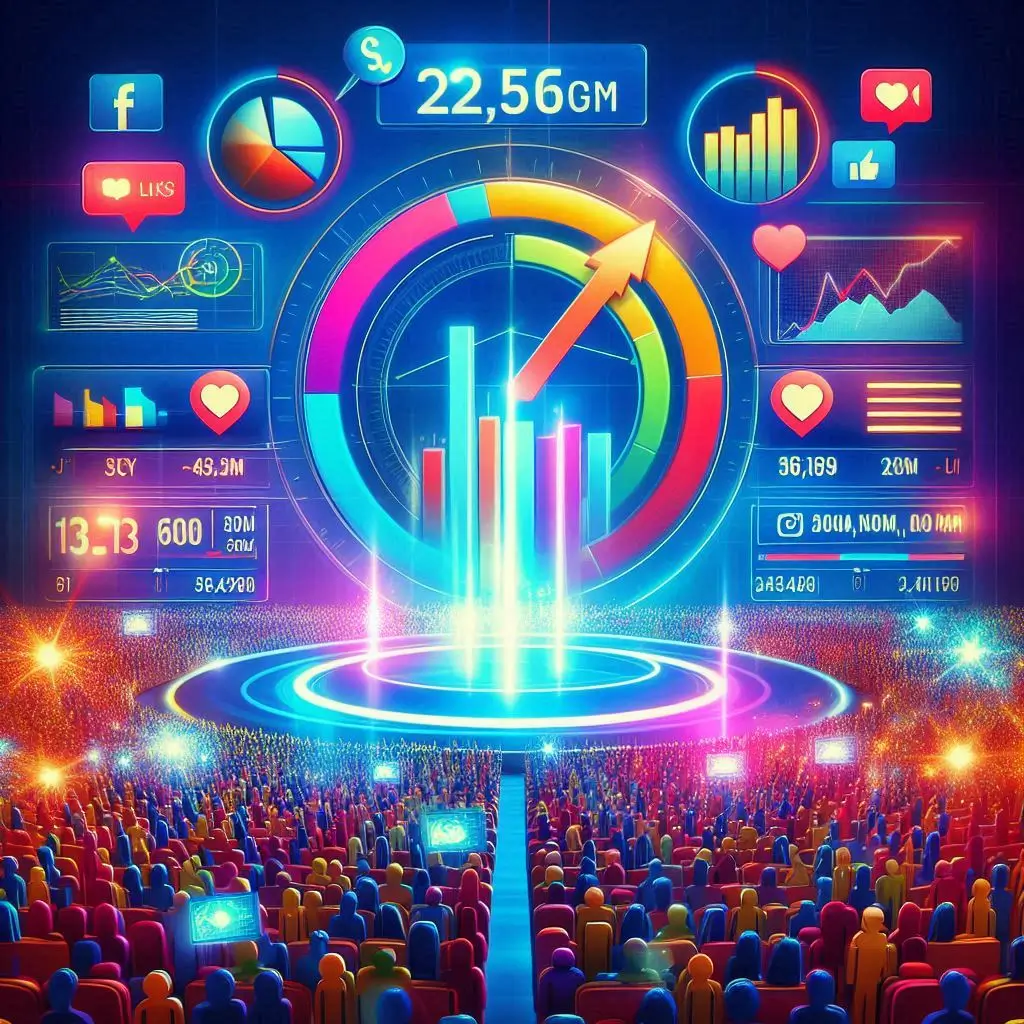
Content Marketing
Average Cost: $5,001 – $10,000 per month
Content marketing focuses on creating valuable, relevant, and engaging content to attract and retain your target audience. Costs vary based on the type of content produced (blogs, whitepapers, videos, or infographics) and the frequency of publication.
For instance, producing high-quality blog content optimized for SEO can cost $5,001 monthly for smaller campaigns. Larger campaigns, incorporating video content, eBooks, and multimedia strategies, might exceed $10,000 monthly. The investment ensures improved audience retention, increased brand authority, and better search engine rankings.
Email Marketing
Average Cost: $51 – $1,000 per month
Email marketing remains one of the most cost-effective digital marketing strategies in 2024. Costs depend on the size of your email list, the complexity of email campaigns, and the frequency of distribution.
For businesses with small subscriber lists, email marketing tools like Mailchimp or Constant Contact may cost as little as $51 monthly. Larger organizations managing segmented campaigns with advanced automation can spend up to $1,000 monthly. Email marketing ensures consistent communication with your audience, leading to increased customer retention and higher conversion rates.
Web Design and Development
Average Cost: $501 – $10,000 per year
Web design and development are crucial for establishing a professional and user-friendly online presence. Costs vary depending on the complexity of the website, the features required, and whether you are building a new site or maintaining an existing one.
For basic websites with limited functionality, costs may start at $501 annually. However, advanced websites with e-commerce capabilities, custom features, and ongoing support can reach $10,000 or more annually. Investing in a well-designed website enhances user experience, boosts SEO performance, and increases conversions.
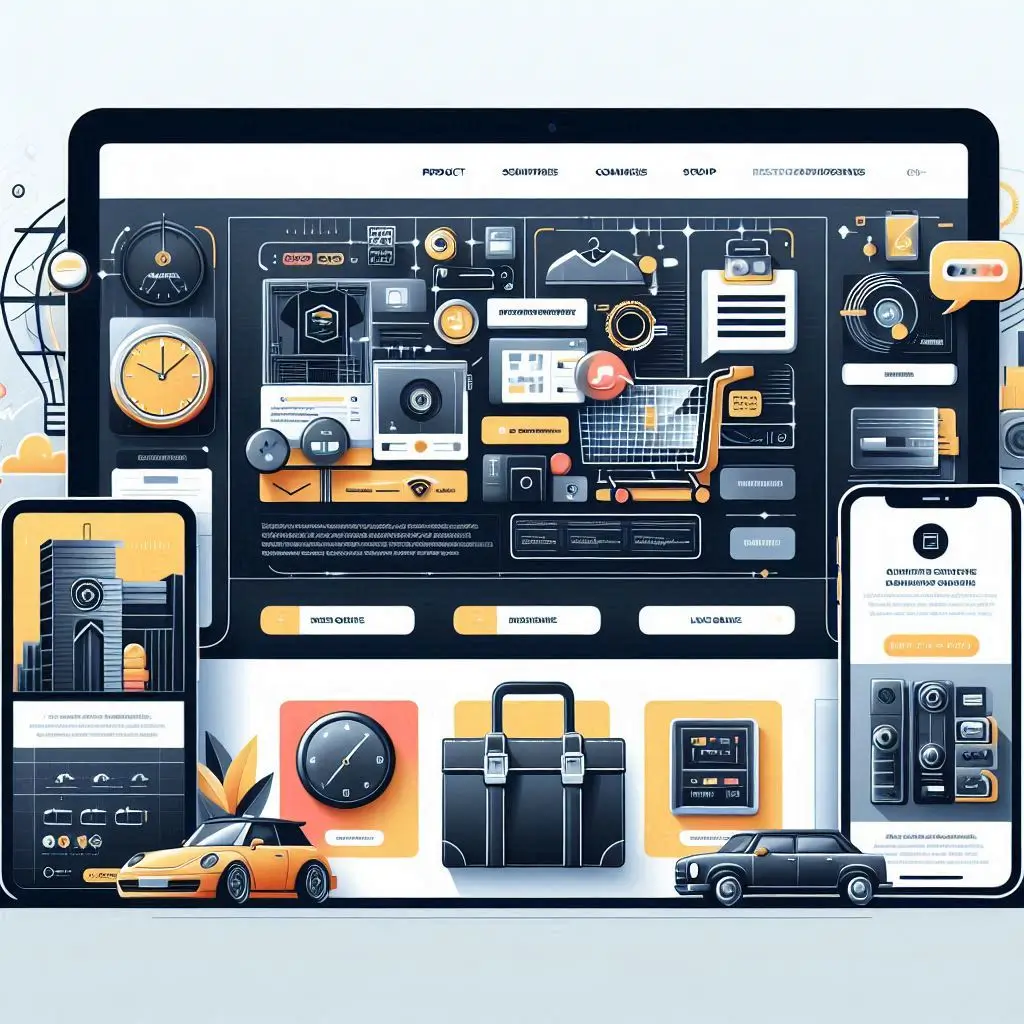
Agency Costs vs. Freelancers: Which Is Better?
When it comes to digital marketing, businesses face a crucial decision: Should they hire a professional agency or opt for a freelancer? Both options have their merits, and choosing the right one depends on your business needs, budget, and long-term goals. Understanding the differences between agencies and freelancers in terms of cost, expertise, and outcomes is essential for making an informed decision.
Pros and Cons of Hiring a Digital Marketing Agency
Hiring a digital marketing agency offers several advantages, especially for businesses that require comprehensive, multi-channel strategies. However, it also comes with some drawbacks compared to hiring a freelancer. Let’s break it down.
Flat Monthly Fees for Agencies
One of the key advantages of working with a digital marketing agency is the predictable pricing structure, typically offered as flat monthly fees. Agencies often bundle their services into comprehensive packages that include SEO, PPC, social media marketing, and content creation. This consistency in pricing simplifies budgeting for businesses, as there are no surprise costs. However, the fees might be higher than what freelancers charge, making this option more suitable for companies with larger budgets.
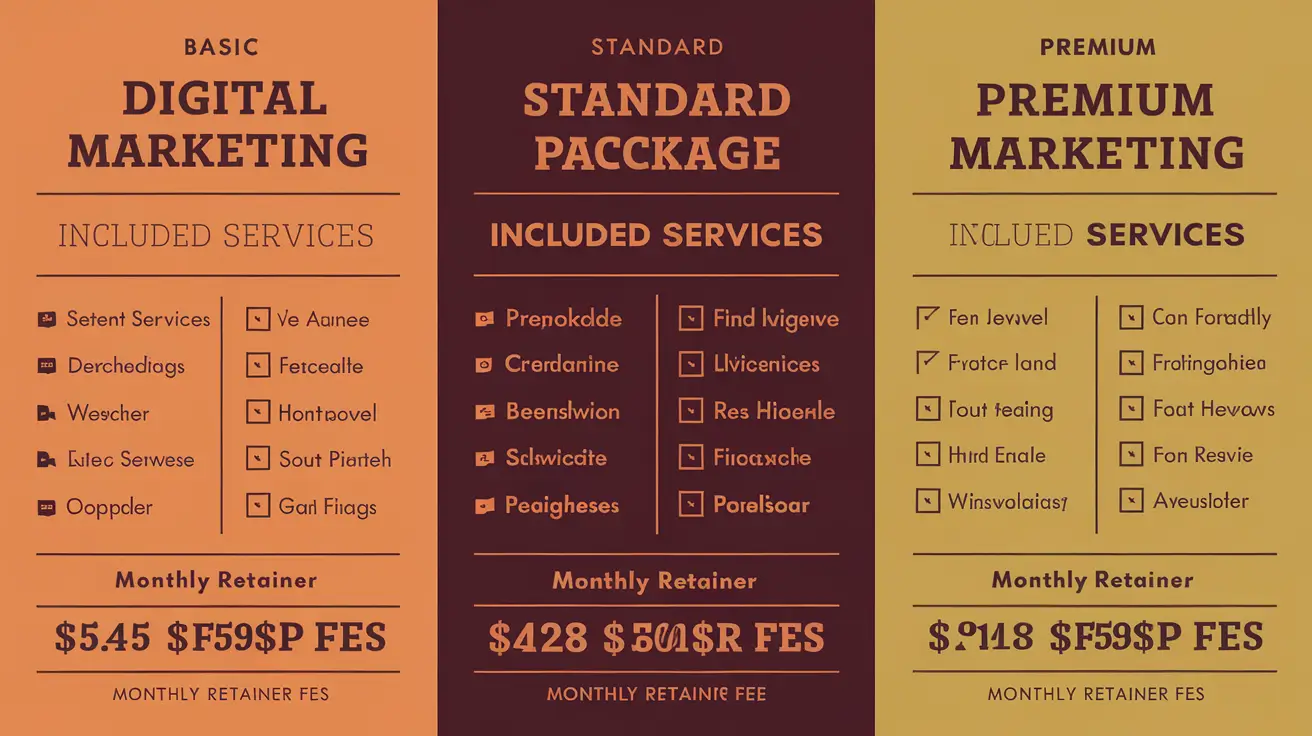
Specialized Attention and Expertise
Digital marketing agencies bring a wealth of specialized expertise to the table. With dedicated teams for SEO, content creation, PPC, and more, agencies can handle complex campaigns efficiently. They often stay updated with the latest industry trends and have access to advanced tools and analytics platforms. This level of expertise ensures that your marketing efforts are not just effective but also aligned with industry best practices. The downside is that communication can sometimes feel less personal compared to working directly with a freelancer.
Larger Teams and Resources
Agencies have larger teams, which means they can manage multiple aspects of your marketing campaign simultaneously. This is particularly beneficial for businesses looking for integrated strategies that cover various channels like social media, email marketing, and paid ads. Their resources, including design teams, content specialists, and data analysts, ensure comprehensive support. However, larger teams might lead to higher costs and potentially slower decision-making compared to freelancers who can act quickly.
Comparing Costs: Agencies vs. Freelancers
Cost is a significant factor in deciding whether to hire an agency or a freelancer. Both options cater to different business needs and budgets, and understanding the financial implications of each can help businesses make the best choice.
Hourly Rates
Freelancers generally charge lower hourly rates than agencies, making them an attractive option for businesses with tight budgets or smaller projects. Freelance digital marketers may charge between $25 and $150 per hour, depending on their experience and specialization. In contrast, agencies typically charge higher hourly rates, ranging from $100 to $300 or more, due to their overhead costs and larger teams. While freelancers are cost-effective for short-term tasks, agencies provide more comprehensive services, justifying their higher rates.
Project-Based Costs
For specific projects, such as website design or a one-time PPC campaign, freelancers often offer lower project-based pricing than agencies. For example, a freelancer might charge $2,000 for a basic website redesign, whereas an agency might charge $5,000 or more for the same service. However, agencies often include additional benefits like ongoing support, optimization, and performance tracking, which can add significant value over time. Businesses need to evaluate the scope and complexity of the project when deciding between these two options.
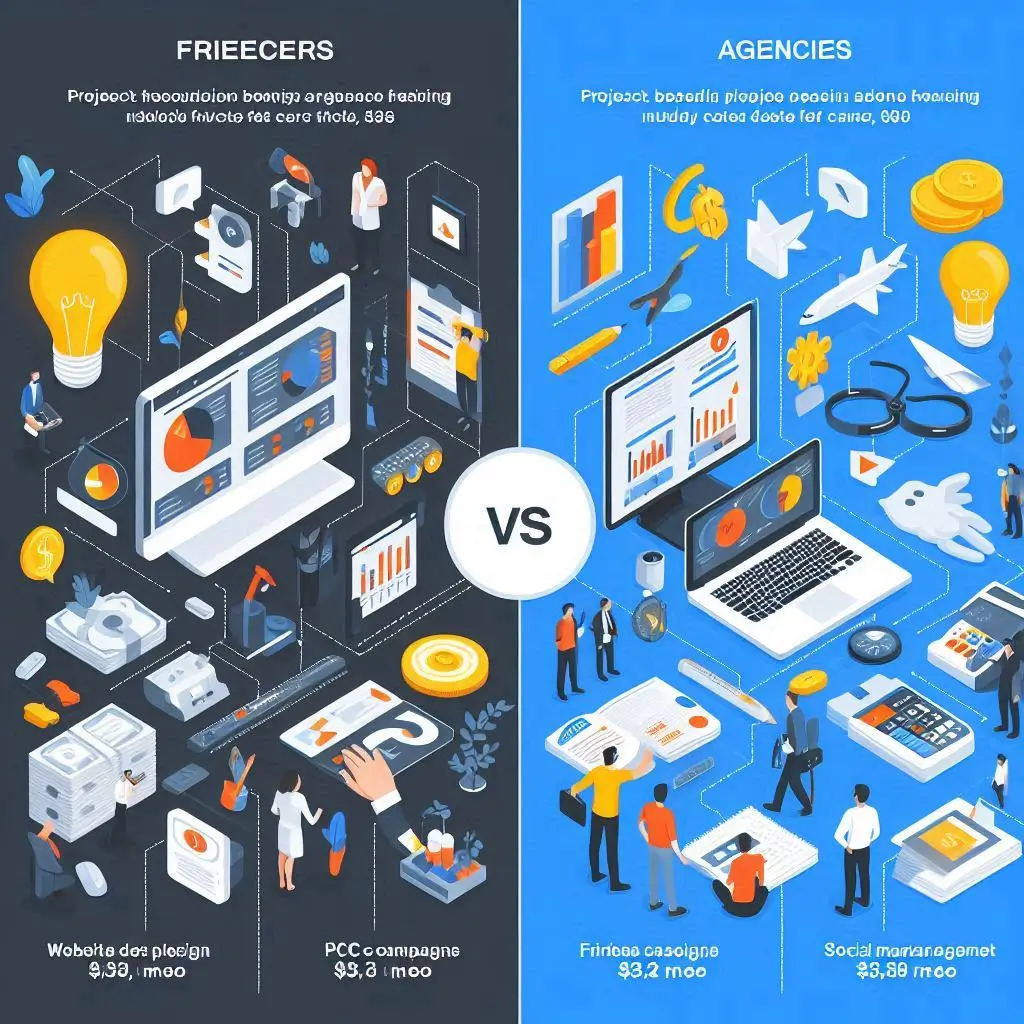
Long-Term ROI
While agencies generally have higher upfront costs, they often deliver better long-term ROI. Their ability to provide strategic planning, consistent execution, and detailed analytics ensures that marketing efforts are optimized for maximum results. Freelancers, on the other hand, might lack the bandwidth or tools to deliver the same level of strategic impact. Businesses with growth-focused goals and scalable needs typically find agencies to be a better investment over time, even if the initial costs are higher.

Benefits of Hiring a Digital Marketing Agency
In today’s highly competitive digital landscape, hiring a digital marketing agency is no longer a luxury—it’s a necessity for businesses aiming to thrive. Agencies provide an all-encompassing solution for your marketing needs, enabling you to focus on your core operations while reaping the benefits of professional expertise. Below are the key advantages of partnering with a digital marketing agency to help grow your business in 2024.
Save Time and Money
Hiring a digital marketing agency can save significant time and money compared to building and maintaining an in-house team. Agencies come equipped with trained professionals, reducing the time spent on hiring, onboarding, and training employees. Additionally, they have access to premium tools and software—such as analytics platforms, SEO tools, and content creation software—at no extra cost to your business.
Financially, agencies offer scalable pricing models, allowing you to pay for only the services you need. This approach eliminates the overhead costs of salaries, benefits, and workspace associated with in-house teams. Businesses benefit from quicker results and cost-efficiency, freeing up resources for other priorities.

Access to Specialized Skills
Digital marketing agencies house experts in various fields, including SEO, PPC, content marketing, social media strategy, and web development. This collective expertise ensures your campaigns are crafted and executed using best practices and the latest trends.
For example, an agency’s SEO team can enhance your website’s search rankings while a social media specialist creates engaging campaigns tailored to your audience. This level of specialization is difficult and costly to replicate with an in-house team or a generalist freelancer. Agencies also stay updated with industry changes, ensuring your business benefits from cutting-edge strategies and tools.
Boost Your Business Revenue
Digital marketing agencies are results-driven, focusing on strategies that directly impact your bottom line. From increasing website traffic and generating leads to improving conversion rates, agencies develop customized campaigns that align with your business goals.
Through performance-based metrics and regular reporting, agencies provide insights into what’s working and what needs improvement. This data-driven approach ensures continuous optimization, leading to increased revenue over time. With a comprehensive strategy in place, your business can scale its marketing efforts seamlessly to meet growing demands.

Stay Ahead of Competitors
A digital marketing agency helps your business maintain a competitive edge by leveraging advanced strategies and technologies. Agencies monitor market trends, competitor activities, and consumer behavior to craft campaigns that resonate with your target audience.
For example, agencies can use competitor analysis tools to identify gaps in your competitors’ strategies, allowing your business to capitalize on opportunities they’ve missed. Additionally, agencies implement innovative approaches—like AI-driven marketing or voice search optimization—to ensure you remain relevant in a fast-evolving market. This proactive approach keeps your brand one step ahead.

What to Look for When Choosing a Digital Marketing Agency
Selecting the right digital marketing agency is a critical decision that can significantly impact your business’s success. With numerous agencies vying for attention, knowing what to prioritize during the selection process ensures you choose a partner capable of delivering results. Below are key factors to consider when choosing a digital marketing agency.
Transparency in Pricing
Transparency in pricing is a hallmark of a reliable digital marketing agency. A trustworthy agency will clearly outline its pricing models, detailing what is included in each package or service. Whether they operate on a retainer, hourly, or project-based pricing model, the agency should provide a breakdown of costs upfront, avoiding hidden fees or unexpected charges.
Transparent pricing not only builds trust but also allows you to assess whether the agency’s services align with your budget. Look for agencies that offer flexible packages tailored to your specific needs without compromising on quality.
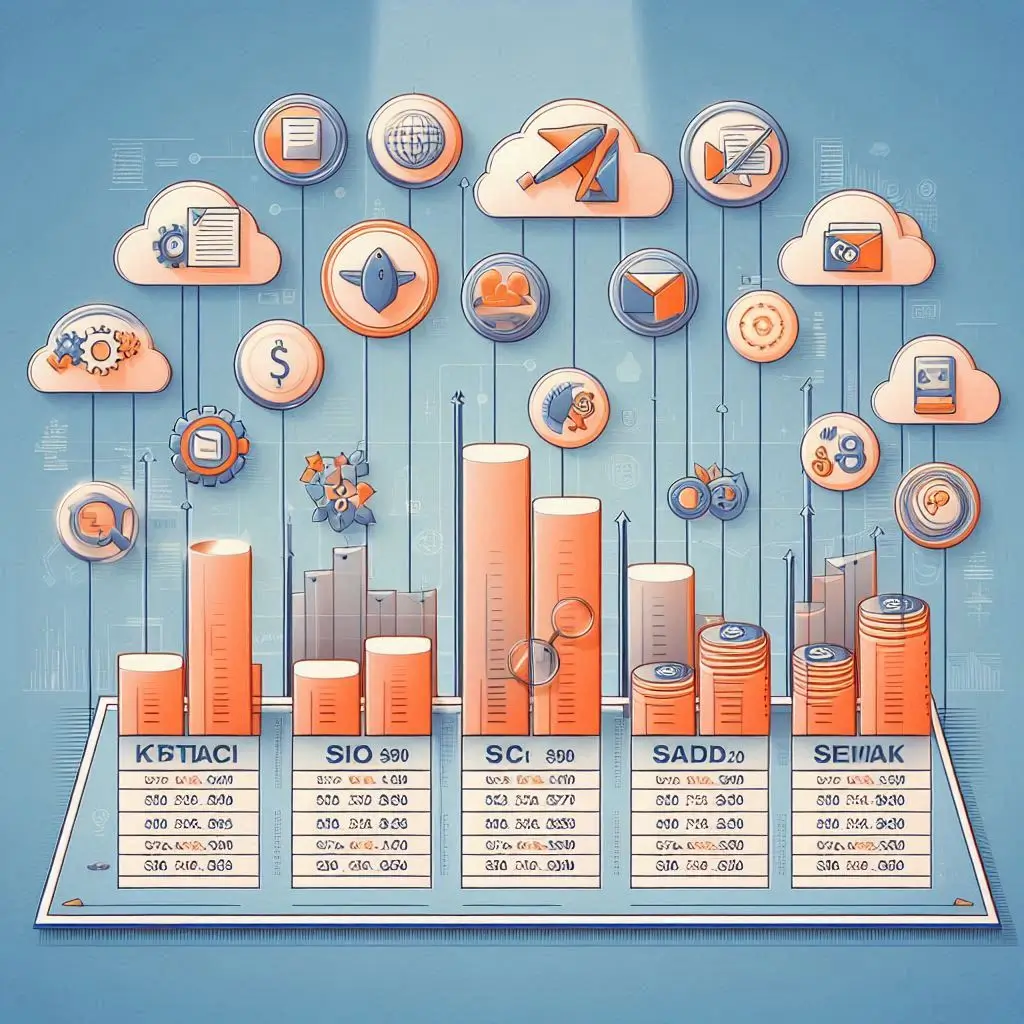
Proven Track Record of Results
A digital marketing agency’s past performance is a strong indicator of its capabilities. Look for an agency with a proven track record of delivering measurable results for clients in your industry. This can include case studies, client testimonials, and portfolio examples showcasing successful campaigns.
A reliable agency should also be willing to provide data-driven insights, such as increases in website traffic, lead generation, or conversion rates from past projects. Client success stories and industry-specific achievements can reassure you that the agency understands your market and can replicate similar results for your business.
Range of Services Offered
A full-service digital marketing agency is often the best choice for businesses seeking comprehensive solutions. From SEO and PPC to social media management, email marketing, and web design, an agency with a diverse service portfolio can address all aspects of your digital marketing strategy under one roof.
This holistic approach ensures consistency across channels, streamlining your marketing efforts and enhancing brand visibility. Agencies offering specialized services tailored to your needs are particularly advantageous, as they can adapt to your evolving business requirements.

Clear Communication and Reporting
Effective communication is essential for a successful partnership with a digital marketing agency. The agency should provide clear, consistent updates on campaign progress, using easy-to-understand metrics and reporting tools. Regular meetings, email updates, and detailed performance reports demonstrate the agency’s commitment to keeping you informed.
Additionally, agencies that actively seek your input and encourage collaboration are more likely to align their efforts with your business goals. Look for transparency in how they track results and adjust strategies to optimize outcomes. Agencies that prioritize communication foster trust and ensure smoother project execution.

FAQs About Digital Marketing Agency Costs
Navigating the costs associated with digital marketing agencies can be daunting for many businesses. To make informed decisions, it’s essential to understand the pricing structures, value propositions, and services offered by agencies. Here, we answer some frequently asked questions about digital marketing agency costs to help you evaluate whether this investment is right for your business.
How Much Does a Digital Marketing Agency Charge?
Digital marketing agency charges can vary widely based on factors such as the agency’s experience, scope of services, and the complexity of your project. On average:
- SEO services cost $2,500–$7,500 per month.
- Pay-Per-Click (PPC) campaigns range from $100–$10,000 per month, depending on ad spend.
- Content marketing may cost $5,001–$10,000 per month.
- Social media marketing typically falls between $100–$5,000 per month.
- Web design and development can range from $501–$10,000 per year.
These estimates offer a baseline, but actual costs depend on your business size, industry, and marketing goals. Custom quotes from agencies can give a more accurate picture.
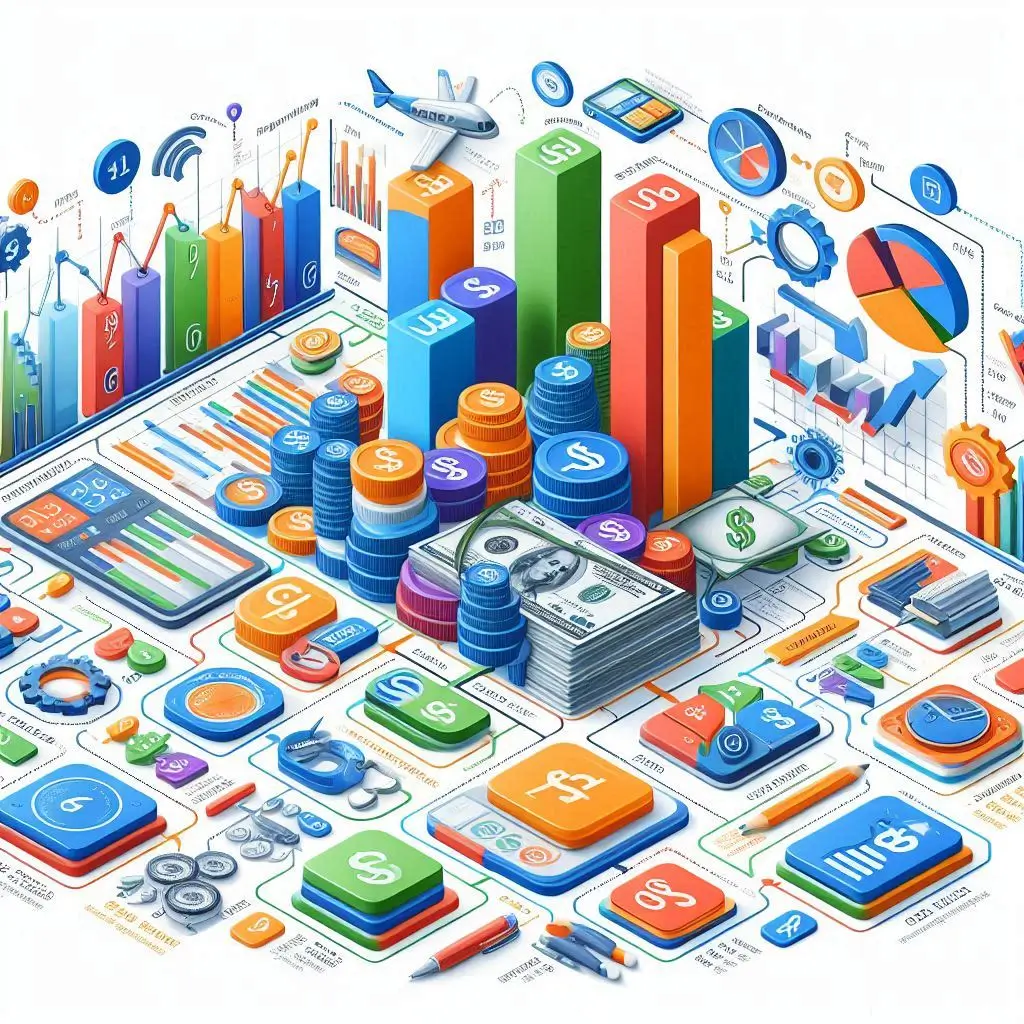
Is Digital Marketing Worth the Investment?
Yes, digital marketing is a worthwhile investment for businesses aiming to grow in a competitive online marketplace. Agencies deliver measurable results by leveraging their expertise, tools, and resources. Key benefits include:
- Increased ROI: Agencies implement data-driven strategies to maximize your marketing budget.
- Brand Visibility: By optimizing your online presence, agencies help your business reach more potential customers.
- Scalability: Agencies adapt their strategies as your business grows, ensuring sustained success.
While the upfront costs may seem significant, the long-term benefits—such as increased revenue, improved customer acquisition, and higher brand loyalty—outweigh the initial expense.
What Services Are Typically Included?
A full-service digital marketing agency typically offers a wide range of services, which may include:
- SEO (Search Engine Optimization): Improving website visibility in search engines.
- PPC (Pay-Per-Click Advertising): Managing paid ad campaigns on platforms like Google Ads and social media.
- Content Marketing: Creating blog posts, videos, and infographics to engage your audience.
- Social Media Marketing: Building and managing your brand presence on social platforms.
- Email Marketing: Designing and managing email campaigns to nurture leads.
- Web Design and Development: Creating and maintaining an optimized, user-friendly website.
Agencies may also offer additional services such as video production, eCommerce optimization, and analytics reporting. These bundled services streamline your marketing efforts and ensure consistency across all channels.
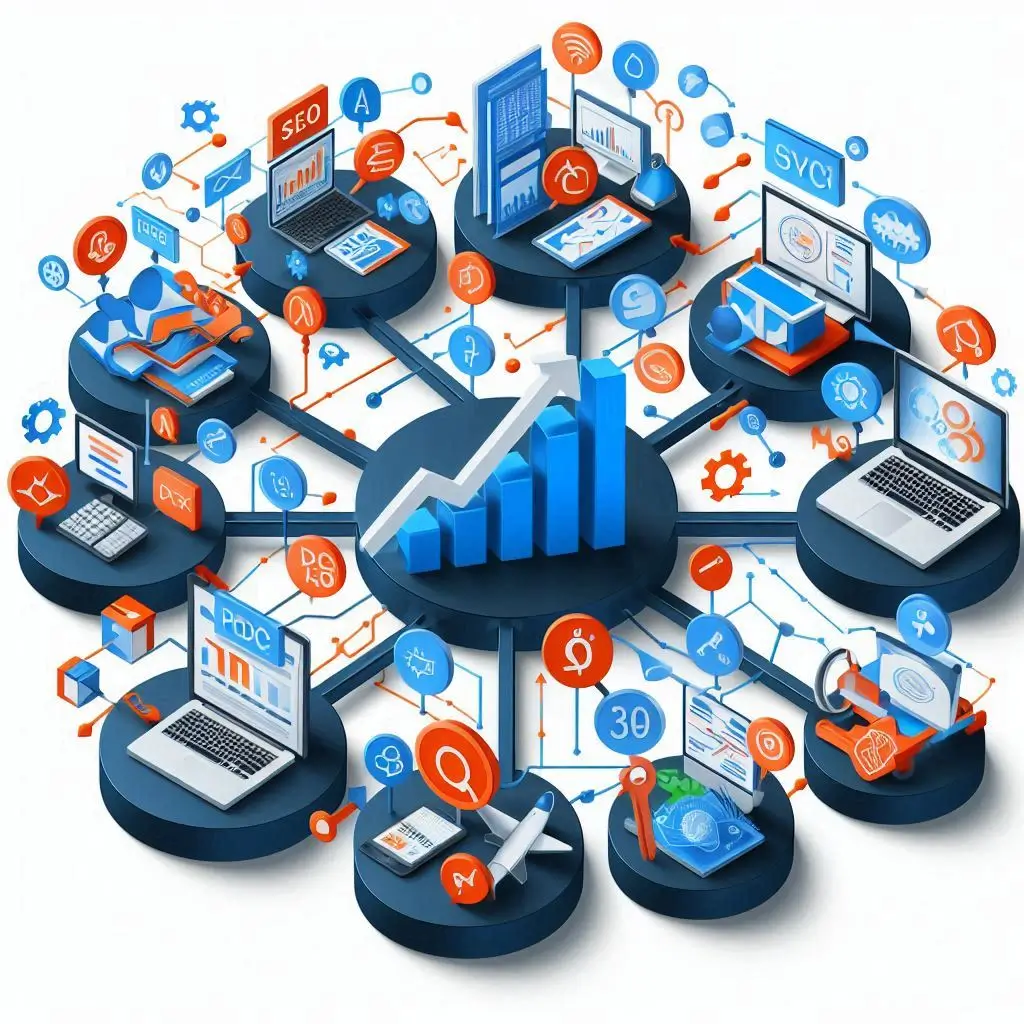
Can Agencies Customize Their Pricing?
Yes, most digital marketing agencies offer customizable pricing plans tailored to your unique needs. Customization depends on factors such as:
- Your Budget: Agencies can adjust the scope of services to align with your financial resources.
- Business Goals: Specific goals, such as increasing website traffic or generating leads, influence the services and strategies included.
- Industry Requirements: Certain industries, like eCommerce or healthcare, may require specialized services or compliance considerations.
- Campaign Duration: One-time projects, such as website redesigns, will have different pricing than ongoing retainer-based services.
Custom pricing ensures that you pay for only the services you need, making the investment more efficient and tailored to your business. Agencies often provide detailed consultations to determine the best plan for you.

Conclusion: Is a Digital Marketing Agency Right for You?
In the rapidly evolving digital landscape, businesses face the challenge of staying competitive while managing marketing efforts effectively. A digital marketing agency can be the key to achieving this balance, offering specialized expertise and tools to drive your business forward. However, determining if it’s the right choice requires thoughtful consideration of your business needs, budget, and long-term goals.
Evaluating Your Business Needs and Budget
Before hiring a digital marketing agency, it’s essential to assess your current business situation and marketing objectives. Consider the following:
- Current Challenges: Are you struggling with low website traffic, limited brand visibility, or stagnant sales?
- Marketing Goals: Do you aim to boost online visibility, generate leads, or improve customer engagement?
- Budget Constraints: How much can you allocate toward professional marketing services without straining your financial resources?
If you find your internal team lacks the skills, tools, or time to execute a robust marketing strategy, partnering with an agency can provide the expertise you need. While agencies can be an upfront investment, they often deliver cost-effective solutions and measurable results over time.

Understanding the Value of Professional Marketing Services
Digital marketing agencies bring value beyond what most in-house teams can offer. They have access to advanced tools, industry insights, and a team of specialists dedicated to various aspects of digital marketing, such as SEO, PPC, social media, and content creation.
By outsourcing your marketing efforts to professionals, you gain:
- Expert Strategy Development: Agencies craft data-driven strategies tailored to your audience and goals.
- Efficiency: With experts handling your campaigns, you can focus on core business activities.
- Scalability: Agencies can adapt to your evolving needs, whether launching a new product or entering a new market.
Additionally, agencies often provide detailed performance metrics, ensuring transparency and accountability. This data empowers businesses to make informed decisions, optimize campaigns, and achieve a higher return on investment.
Taking the Next Step Towards Growth
Deciding to work with a digital marketing agency is not just a financial decision; it’s a strategic investment in your business’s future. Once you’ve evaluated your needs and recognized the value of professional services, the next step involves:
- Researching Agencies: Look for agencies with a proven track record, industry experience, and transparent pricing.
- Consulting with Agencies: Schedule consultations to discuss your goals, challenges, and expectations.
- Setting Measurable Goals: Define clear objectives and key performance indicators (KPIs) to track success.
- Collaborating Effectively: Treat your agency as a partner, providing them with the information and resources needed for optimal results.
By taking these steps, you can form a strong partnership with an agency that aligns with your vision and drives sustainable growth.
In conclusion, partnering with a digital marketing agency can be a game-changer for your business, offering specialized expertise, scalability, and measurable results. By evaluating your business needs, understanding the value of professional services, and carefully considering your budget, you can make an informed decision. Whether you’re looking to enhance your online presence, drive revenue, or stay ahead of competitors, a skilled agency can provide the tools and strategies necessary for sustainable growth. Take the next step toward achieving your marketing goals and unlock your business’s full potential with the right digital marketing partner.

